Incredibly it has already been a year since I first took to the streets of Elgin town centre as a would-be traffic warden for the day.
Complaints about drivers ignoring pedestrianised zones, parking on pavements and blocking disabled bays had reached boiling point.
So I decided to see the issues for myself.
In just five hours last year I spotted 131 potential offences in Elgin town centre that could have landed motorists fines totalling more than £10,000.
Back then there was an assumption that all would return to normal as soon as the scaffolding that had been outside Poundland for six years.
And in the intervening period there has been a parking clampdown campaign run by police and funded by Moray Council.
This month we revealed police parking fines on Elgin High Street had soared from 38 in 2023 to an incredible 294 so far this year.
So, are drivers in Elgin being naughty or nice? And are things better than last year after the clampdown?
I decided to hit the streets of Elgin town centre again from 11am to 4pm this week to see whether things had improved.
- I discovered a whole new set of problems that weren’t there a year ago.
- Spotted a potentially worrying situation developing on one town centre street.
- And witnessed a shopper taking it upon himself to try and enforce Elgin’s driving rules.
11am: Rush hour on Elgin High Street
Beginning my shift as a would-be traffic warden, the first thing I notice is the sheer number of vehicles on Elgin High Street.
There are three vans on the pavement in the area outside Poundland and Ca’Dora, one which I recognise from the day before.
A year ago I spotted this stretch of footpath had become a de facto car park with motorists pulling up next to the Poundland scaffolding.
I’ll discover that over the next five hours not much as changed with cars and vans frequently mounting the kerb. One van that was there at 11am was incredibly still there at 4pm.
A short walk down to the High Street and there are an incredible 12 vehicles on what is supposed to be a pedestrianised road between 11am and 4pm.
There’s a cherry picker with a crew doing repairs to a building, various courier vans making deliveries and a Moray Council crew repairing broken slabs caused by motorists driving over stone not designed for vehicles.
I’m a fair-minded traffic warden, so I don’t include any of the vehicles already on Elgin High Street in my makeshift notebook of fines.
Most appeared to be there for legitimate purposes.
It’s not long though before the first driver comes rolling past the “pedestrian zone” sign, which is more visible than last year with the Poundland works finished.
It’s 11.10am when a silver Audi ignores the rules.
They’re quickly followed by a black Land Rover who flicks the hazard lights on when they enter the Plainstones as if it’s some kind of apology.
You wouldn’t put your hazard lights on driving down the rest of the High Street, so why put them on on the Plainstones?
It’s appears almost like an admission they know they’re not really supposed to be there.
A good proportion of the drivers I see on the High Street over the next few hours will do the same.
Potential offences spotted
- Driving on the Plainstones: 13
- Driving up Batchen Street: 2
- Pavement parking: 6
- Parking in disabled bay without blue badge: 2
12noon: Are problems looming on South Street?
After an hour on the High Street, it’s time to take my notepad and watchful eye elsewhere in Elgin town centre.
The first thing I do is note down all the registration plates of cars parked in 30-minute bays on Culbard Street and North Guildry Street.
Police issued an eye-watering 158 fines on these two roads alone earlier this year. I’ll return later to see how many are overstaying today.
After that, I circle back to South Street to watch what’s going on.
From speaking to several businesses on the road throughout the year I know they value this location because it provides access for their customers.
So, how are things working today?
‘Difficult’ might be the be the best way to put it from the hour I spent there.
The obvious pinch point has come from the loading bays outside the former Junners building being blocked off ahead of demolition works there.
Meanwhile, vehicles in the remaining loading bays remained predominantly static during my time on South Street.
The result was several cars parking on double yellow lines for what would otherwise be considered loading and unloading.
One HGV was forced to park on double yellow lines, almost completely blocking the entrance to Academy Street to make a delivery to one of the South Street restaurants.
Demolition works at Junners are expected to take several months early next year with construction on retail units and flats due to begin after that.
It’s likely the loading bays there will remain out of use for some time, reducing the number of spaces in loading bays on South Street.
Potential offences of parking on double yellow lines spotted
- South Street: 12
- Culbard Street: 1
- North Guildry Street: 1
- South Guildry Street: 1
- Academy Street: 1
- Tunderton Place and Batchen Lane: 4
1pm: Courier driver accosted by Elgin citizen traffic warden
It’s lunchtime, so we’re back on the High Street with a hot pie and coffee from one of the town centre takeaways to keep us warm.
I resume my position underneath the Christmas tree, preparing some presents for drivers who flout Elgin’s traffic rules.
My eye is caught by a courier van driving past the fountain, mainly because it came very close to me on what should be a pedestrianised street.
I was mainly surprised because the driver was heading the wrong way down a one-way street, when it’s actually open to traffic that is.
I wasn’t the only one surprised at the sight of the driver attempting to drive back towards Batchen Street. One shopper takes it upon himself to issue his own version of a verbal warning.
“You do know this is a one way street, don’t you?,” he says.
Quickly followed by: “It’s pedestrianised too. What are you doing?”
The courier driver has wound down his window to argue his case. I can’t make out what he’s saying in response, but it doesn’t go down well with our citizen traffic warden in Elgin.
“What do you mean you came in from the other end?,” he says.
“There’s a no entry sign down there. Did you not see it?”
After a few further exchanges the courier driver then drove off. I’ll assume they agreed to disagree.
Potential offences spotted
- Driving on Plainstones: 10
- Pavement parking: 2
- Parking in disabled bay without blue badge: 4
2pm: Disabled bays being abused in Elgin town centre
The removal of the Poundland scaffolding has meant that the disabled bays on North Street have been brought back into use.
There’s space for eight average-sized cars in them, meaning they provide a valuable addition to parking in Elgin town centre for those with blue badges.
Are they being properly used though? I’ve been keeping an eye on them at various points through the day.
When I first checked the bays at 11.30am two of the eight cars in the bay didn’t have blue badges.
When I returned at about 1.45pm four of the six cars on North Street didn’t have their disabled passes on view.
And when I took at look for the final time shortly before 3pm there were only three cars there, one of which didn’t have a blue badge.
It means that out of the 17 cars I’ve seen in the disabled bays throughout the day, seven haven’t had blue badges.
While there are still plenty of shoppers going about in the town centre, there aren’t many cars at this time so I decide to take a look at the 30-minute bays at the west end of the High Street.
Are drivers adhering to the time limit? I’ll find out later.
Potential offences spotted
- Driving on Plainstones: 5
- Parking on double yellow lines on North Street: 1
- Parking in disabled bay without blue badge: 1
3pm: Has police clampdown in Elgin reduced abuse of 30-minute bays?
It’s getting dark now and the footfall on Elgin High Street has dwindled to a trickle, so I decide to take my traffic warden duties elsewhere.
I take a walk back to Culbard Street and discover nine of the 12 cars I took the details of are still there about three hours later.
However, drivers on North Guildry Street appear to have paid more attention to the 30-minute limit with only seven of 23 cars still there.
The road, which has Elgin police station on the corner, was one of the most heavily fined as part of the police clampdown. Only the High Street received more.
And it appears as though the enforcement action has led to motorists paying more attention to the time limits.
On the west end of the High Street six of the 18 vehicles in the 30-minute bays are still there.
These short-stay bays do provide a free option for shoppers making quick trips into town for a specific purpose, instead of having to pay to use council car parks.
However, it appears as though many drivers are persisting in leaving their vehicles there for long periods despite the wave of fines issued by the police.
Potential offences spotted
- Overstaying in 30-minute bays: 21
- Driving on Plainstones: 3
- Pavement parking: 1
- Parking on double yellow lines on Culbard Street: 1
- Parking on double yellow lines on Thunderton Place and Batchen Lane: 6
Are Elgin drivers better behaved than last year?
So, the big question. Are Elgin drivers better behaved than last year?
In pure statistics, I spotted fewer potential offences this year than I did last year with 98 compared to the 131 in 2023.
The difference was obvious with my eyes too. At times last year there were an incredible 17 cars parked on the Plainstones.
The most I saw this year was just three, alongside the various work vans that were there for legitimate purposes.
Is that because of the police enforcement earlier this year, or the removal of the Poundland scaffolding?
Maybe a bit of both. The reintroduction of the disabled bays on North Street will undoubtedly have provided an alternative to taking to the Plainstones.
Whether they are using those bays legitimately or not appears to be another issue.
Elsewhere, the reduction in loading bays on South Street could cause another short-term capacity issue.
Being pragmatic, it’s perhaps too much for things to become perfect in just 12 months. However, things have undoubtedly got better than they were.
Whether or not they will stay that way without continued enforcement remains to be seen.
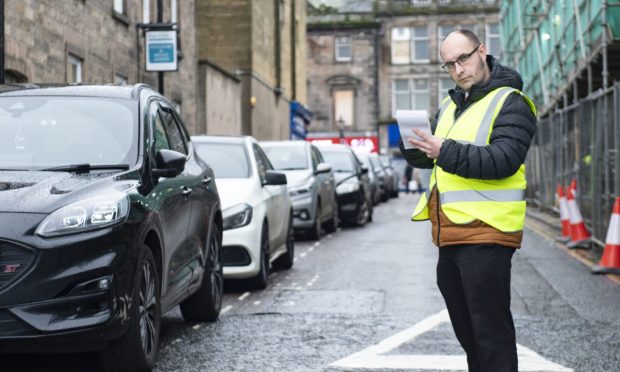

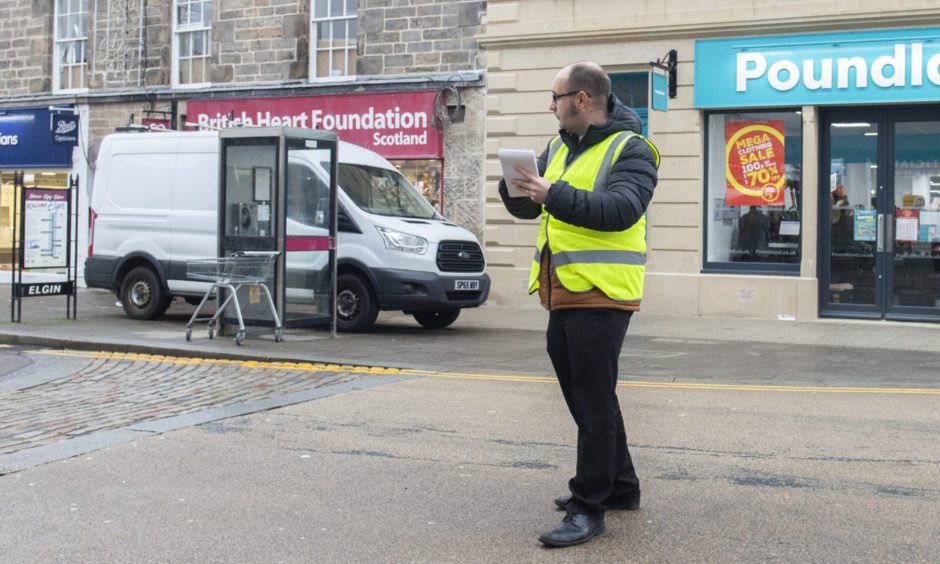
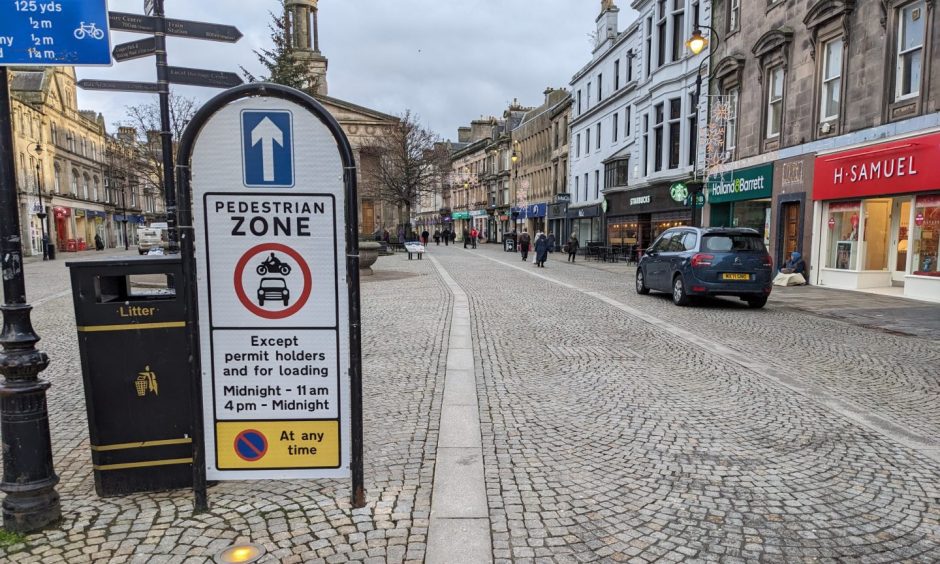


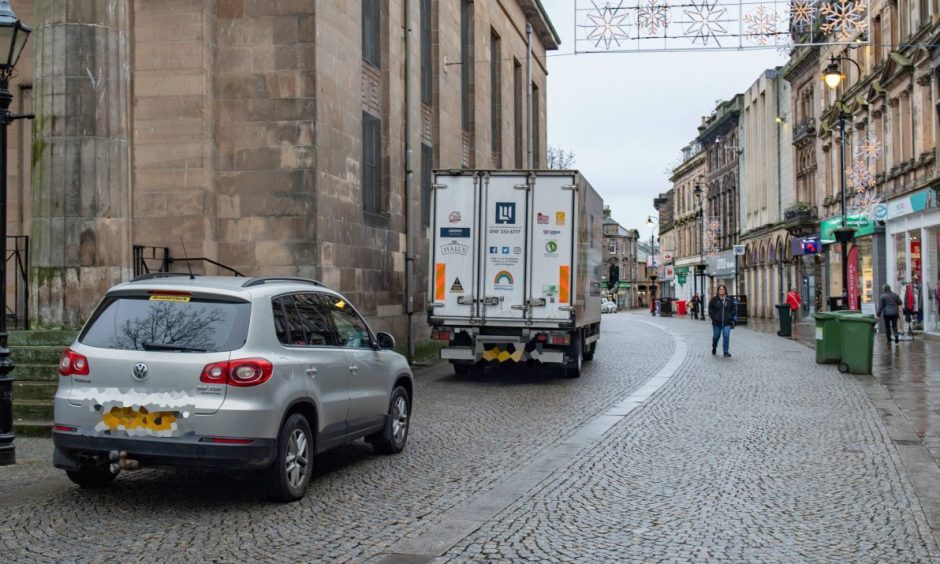
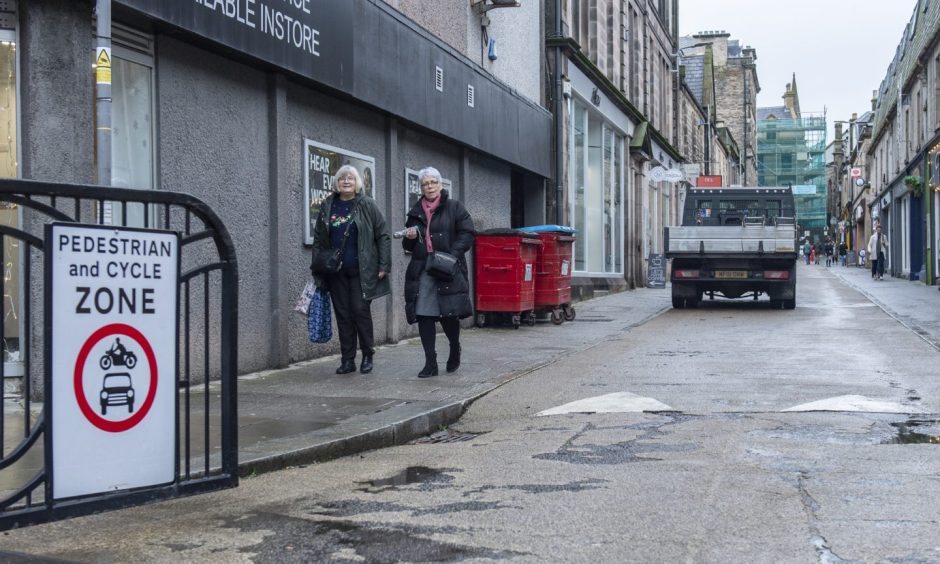
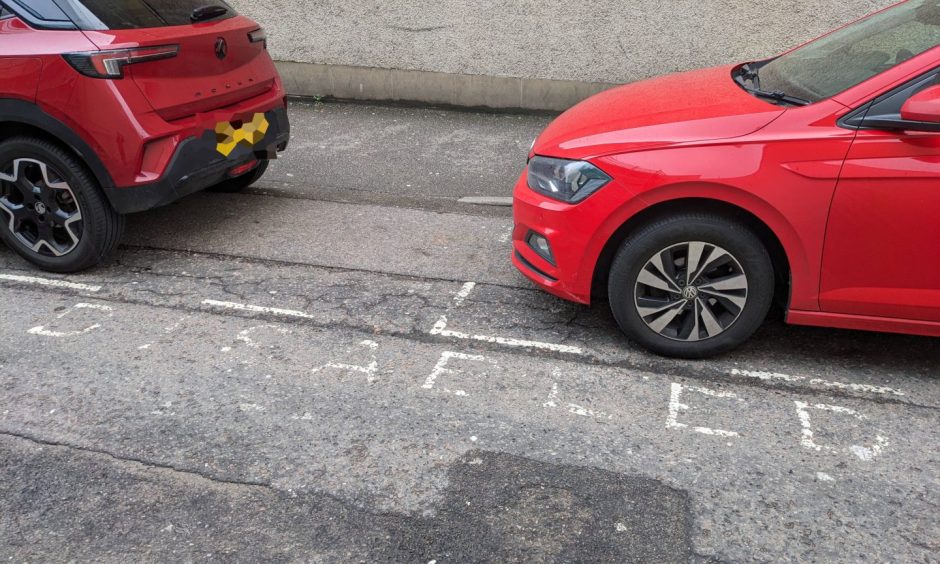
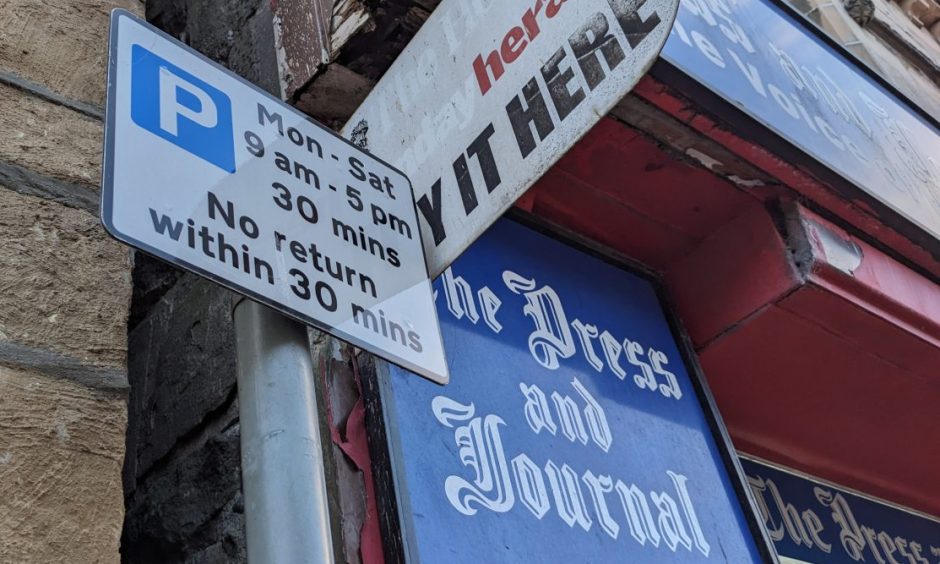
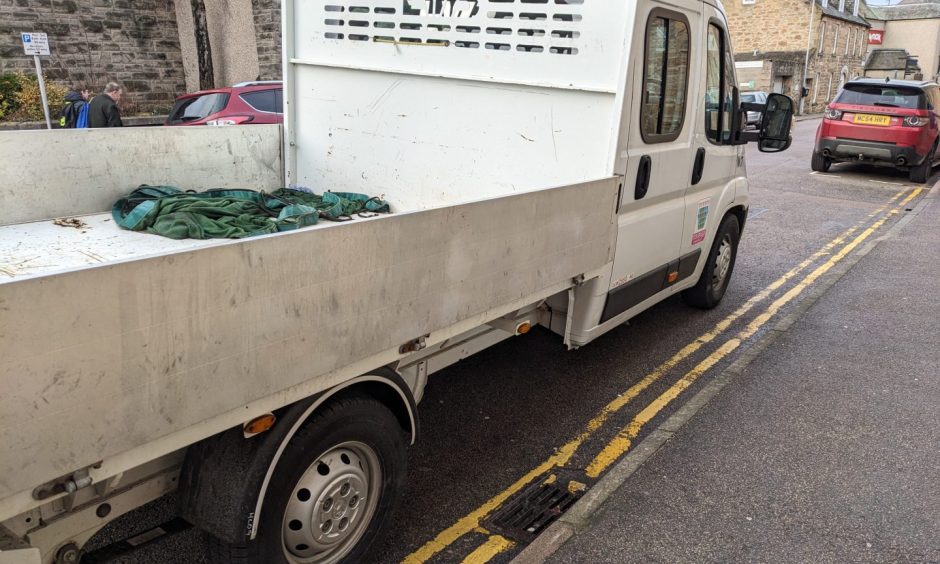
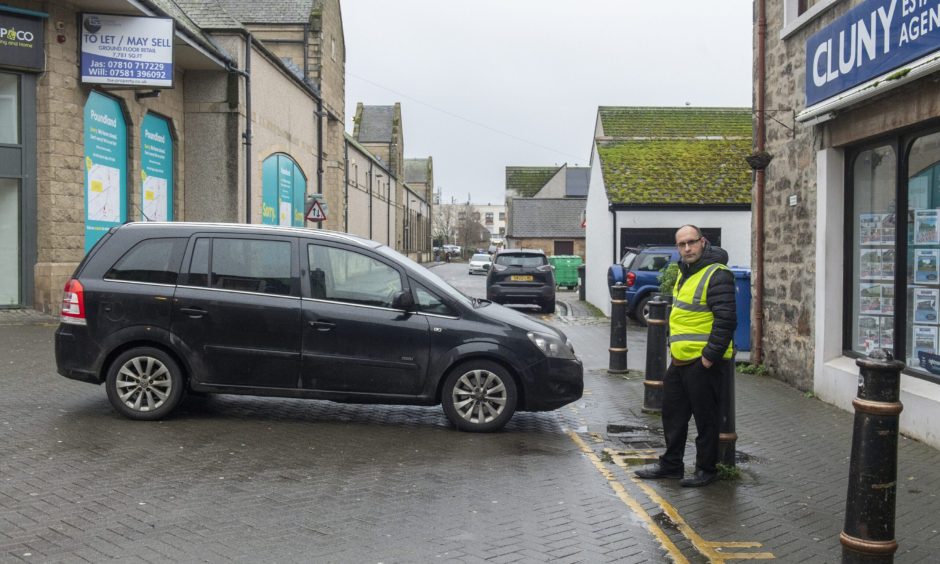
Conversation